Hair loss can be worrying, but there are many natural ways to help prevent it and keep your hair healthy. One of the best ways to start is by focusing on your diet. Eating a balanced diet rich in vitamins and minerals, like iron, zinc, and vitamins A and E, can strengthen your hair. Foods like spinach, nuts, and fish are great choices.
Staying hydrated is also important. Drinking plenty of water helps moisturize your hair and reduce dryness and breakage. Along with hydration, regular exercise can improve blood circulation, which nourishes your hair follicles and promotes growth.
Stress can contribute to hair loss, so finding ways to relax is essential. Activities like yoga, meditation, or simply taking time for hobbies can help manage stress levels. Getting enough sleep is crucial too; a well-rested body is more capable of maintaining healthy hair.
Another natural tip is to use essential oils. Massaging your scalp with oils like rosemary or peppermint can stimulate hair growth and improve circulation. You can mix these oils with a carrier oil, like coconut or olive oil, and apply them regularly to your scalp.
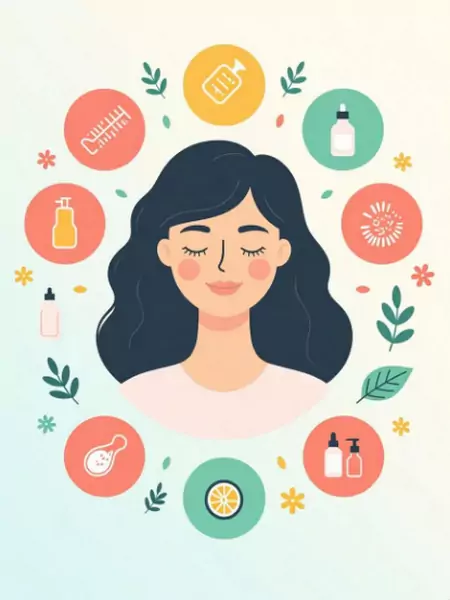
Avoiding harsh hair products and limiting heat styling can also help prevent hair fall. Instead, opt for gentle shampoos and conditioners. When drying your hair, pat it gently with a towel instead of rubbing it harshly.
Lastly, consider natural supplements like biotin or saw palmetto, which may support hair health. Remember, consistency is key with these tips. By making these simple lifestyle changes, you can help protect your hair and promote its growth naturally.
Chemo Hair Loss Tips
Going through chemotherapy can be tough, and one of the hardest parts for many people is losing their hair. If you’re facing this challenge, here are some helpful tips to manage hair loss and support regrowth once treatment is over.
First, it’s important to be gentle with your hair. harsh products and choose mild shampoo conditioners that won’t irritate your scalp. drying your hair, or rubbing it with a towel, try patting it gently. This small change can help reduce breakage.
During chemo, your hair might thin out or fall out completely, which can be emotional. To make things easier, consider wearing a soft hat or scarf that makes you feel comfortable and confident. Many people find that using a wig or a head covering can also help them feel more like themselves during this time.
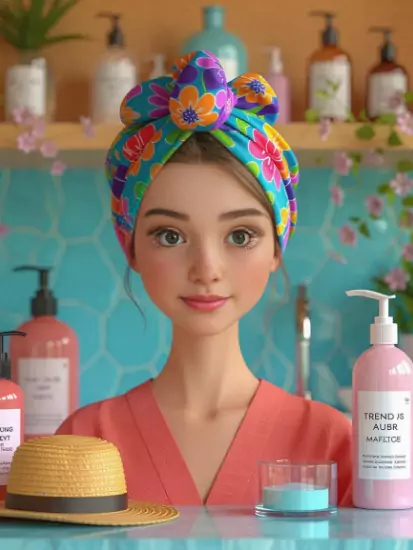
Once your treatment is done, you might be eager to see your hair grow back. To support this process, think about adding natural supplements like biotin or saw palmetto to your routine. These can encourage hair health, but remember to talk to your doctor before starting any new supplements.
Additionally, focus on eating a balanced diet full of vitamins and minerals. Foods rich in protein, iron, and omega-3 fatty acids can be especially helpful. Staying hydrated is also key, so drink plenty of water!
Most importantly, be patient and kind to yourself. Hair regrowth takes time, and everyone’s experience is different. By following these tips and taking care of your scalp and body, you can help promote healthy hair growth after chemo. You’re not alone in this journey, and brighter days are ahead.
Hair Loss Style Tips
Dealing with hair loss can be tough, especially after going through something like chemotherapy. It’s important to remember that you’re not alone, and it’s okay to feel a mix of emotions as you navigate this journey. One of the best things you can do is to be patient and kind to yourself. Hair regrowth takes time, and everyone’s experience is different.
While you wait for your hair to come back, there are some great style tips to help you feel confident and fabulous. First, consider trying out different headwear. Scarves, hats, and beanies can be stylish and comfortable. Choose colors and patterns that express your personality, and don’t be afraid to experiment!
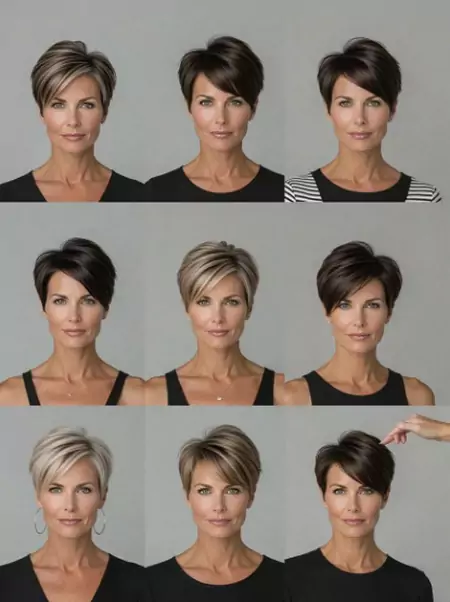
Another idea is to embrace shorter hairstyles if your hair starts to grow back. A cute pixie cut or a bob can look chic and fresh. Plus, shorter styles can be easier to manage as you adjust to the new hair texture.
If you’re feeling adventurous, you might want to try some fun hair accessories like clips or headbands. These can add a pop of color and style, making your look feel complete.
Also, remember to take care of your scalp and body. Keeping your scalp healthy can help promote hair growth. Gentle massages with some natural oils can be soothing and beneficial. Eating a balanced diet rich in vitamins and minerals is key too.
Above all, cherish the journey. Each step you take is part of your unique story, and brighter days are ahead. You’ve got this!
Tips For Covid Hair Loss
COVID-19 has affected many aspects of our lives, including our hair. If you’re experiencing hair loss due to stress or illness, don’t worry—you’re not alone. Here are some helpful tips to manage and promote hair growth during this challenging time.
First, remember to care for your scalp. A healthy scalp is essential for hair growth. You can gently massage your scalp with natural oils like coconut or olive oil. This not only feels great but also improves blood flow to the hair follicles, which can help your hair grow stronger.
Next, focus on your diet. Eating a balanced diet is super important. Load up on fruits and vegetables, whole grains, and lean proteins. Foods rich in vitamins A, C, D, and E, as well as zinc and iron, can make a big difference for your hair. Think of foods like spinach, nuts, eggs, and fish—they’re all great choices!
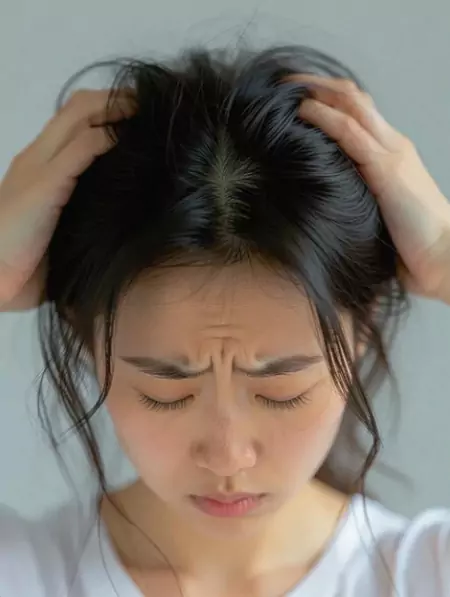
Hydration is also key. Drinking plenty of water keeps your body and hair healthy, so make sure to stay hydrated throughout the day.
Managing stress is vital too. Try activities that help you relax, like yoga, meditation, or even just taking a walk outside. Reducing stress can improve your overall well-being, including your hair health.
Lastly, be patient and kind to yourself. Hair growth takes time, and it’s okay to have ups and downs. Cherish every step of this journey. Remember, brighter days are ahead, and you have the strength to overcome this. Take care of yourself, and your hair will thank you!
Best Way To Stop Hair Loss and Regrow Hair
If you’re struggling with hair loss, you’re not alone, and there are effective ways to help stop it and even regrow your hair. First, it’s important to understand that hair loss can happen for many reasons, like stress, poor diet, or even genetics. The good news is that there are steps you can take to improve the situation.
Start by focusing on your diet. Eating healthy foods rich in vitamins and minerals can really help your hair. Foods like spinach, eggs, and nuts are great options. They provide the nutrients your hair needs to grow strong and healthy.
Next, consider using gentle hair care products. Avoid harsh chemicals that can damage your hair and scalp. Look for shampoos and conditioners that are sulfate-free and made for strengthening hair. When you wash your hair, be gentle. Rubbing too hard can cause more hair to fall out.
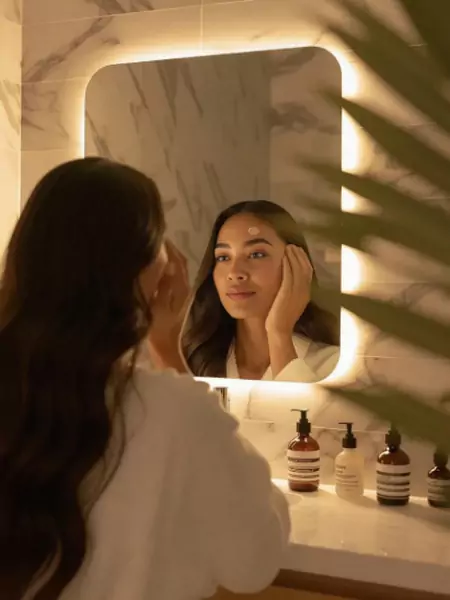
Scalp massages can also be a wonderful way to boost hair growth. Massaging increases blood flow to your scalp, which encourages hair follicles to work better. Try to do this for a few minutes each day; it can be a relaxing routine that’s good for both your hair and your mind.
Don’t forget to manage stress. High-stress levels can lead to hair loss, so find activities that help you relax, like exercising, reading, or spending time with friends.
Finally, be patient and kind to yourself. Hair growth takes time, and it’s okay to have ups and downs along the way. Cherish every little step in your journey. Remember, brighter days are ahead, and with care and effort, you’ll see improvements. Take care of yourself, and your hair will thank you!
A healthy scalp is often underestimated and can, among other things, protect against hair loss. With the right tips and tricks from the experts, healthy, full hair can quickly become a reality. We’ll tell you here exactly what you need to do
Hair is more than just a hairstyle. it can be an expression of personality and, of course, of health. This makes it all the more important that you give them the attention they deserve. Adults have between 80,000 and 120,000 hairs on their heads, up to 100 of which fall out every day, which is completely normal. But if there are visibly more, it is important to take SOS measures and tackle the problems.
Dr. Christian Merkel from the “Hair Center at the Opera” in Munich explains why crises on the scalp can occur again and again: “There are a lot of sebaceous glands there. The scalp is also exposed to external influences that change depending on the season. This is in summer, especially UV radiation, but in winter, often dry heating air.” What helps is thoughtful hair care.
Removing sebum from the scalp is good. However, over-care by washing, blow-drying, or straightening your hair too often can lead to disharmony. “The result is often a dry and flaky scalp or even hair loss,” says the expert. Moisturizing and mild shampoos with hyaluronic acid or urea are ideal for daily use, as are conditioners, masks, tonics, and serums that are used in a similar way to skin care.
How do I care for my hair after washing it?
“A peeling that is used regularly, but not too often, frees the scalp and its hair follicles from sweat, dirt, and styling residues such as silicones or microplastics, and in this way ensures deep cleansing,” continued Merkel. Such an extensive hair care ritual beyond shampooing has almost become normal since the so-called skinification trend began. The idea behind this is to treat the scalp with the same care as the face.
Merkel: “Hair should be brushed before washing. This removes loose hair and prevents vital hair from being torn out.” You can, of course, style your hair after washing, but a coarse-toothed comb is recommended. Furthermore, you should never blow-dry too hot and hold the hairdryer at some distance from the hair. “Going to sleep with wet hair and a towel wrapped around it is not a particularly good idea. Constant contact with water causes the scalp to dry out,” adds the hair expert.
What are the benefits of nutritional supplements for hair?
Many people immediately turn to nutritional supplements as soon as they notice that hair loss is increasing. This can have a short-term effect. “If hair loss begins, I recommend a thorough laboratory examination first to determine whether a lack of vitamins and trace elements is the cause,” says Merkel.
It could turn out that the reasons are to be found elsewhere:
- Is the hair loss possibly hormonal?
- Do medications play a role in this? Maybe there is a thyroid disease?
- Does hair fall evenly over the entire head (diffuse alopecia) or in patches (as in circular hair loss)?
- Is it scarring hair loss due to a fungal disease or due to chronic complaints?
Hair expert Merkel knows: “Some of these conditions can be treated with vitamins and proteins as an infusion or mesotherapy into the scalp to stimulate hair growth.” If you lose hair over a long period, you should consult a specialist if in doubt. “But it doesn’t do any harm to take a course of nutritional supplements over 2 to 3 months to create an oversupply of vitamins and trace elements that the body excretes. You must stop taking them afterward.”
We hope we were able to give you a few helpful tips and tricks on how you can do something good for your scalp and, therefore, your hair.

Leave a Reply